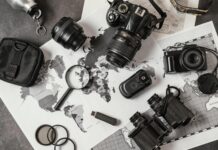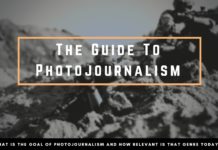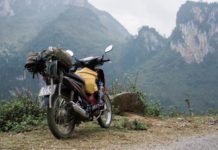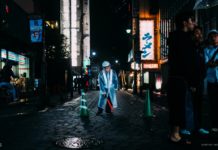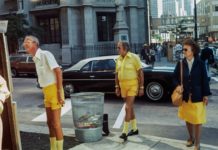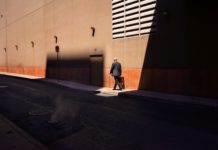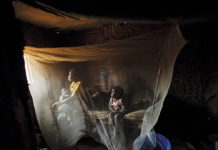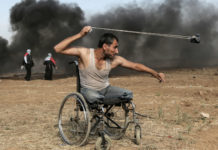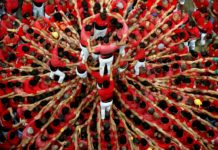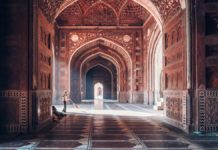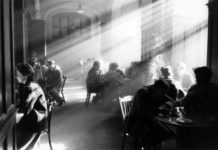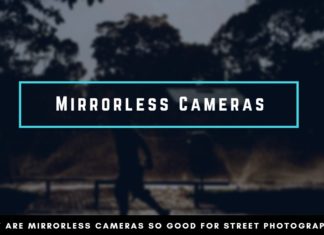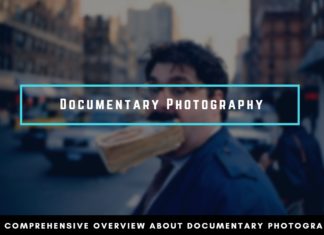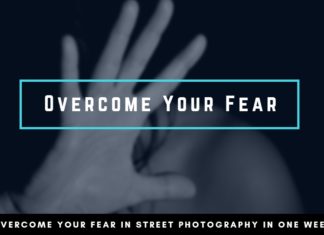1Picture of the Week

by Gabi Ben Avraham | Instagram
2Is 24mm Too Wide for Street Photography? The Pros & Cons of Shooting with a Wide-Angle Lens
Travel photographer Pierre T. Lambert has been on worldwide photo tour, shooting images and sharing how-to videos about his experiences. During his travels, he’s mainly been using two lenses for his Sony mirrorless camera: a 16-35mm and 70-200mm f/2.8.
While they’re great travel photography companions because they offer good focal ranges in relatively small packages, he’s been wanting to shake things up a bit recently.
“With zoom lenses you get kind of lazy. You don’t move that much,” Lambert says. “So, I decided, why don’t I spice things up and put myself in a 7-day challenge. And I thought why not go ahead and do some street photography at 24mm with a 1.4 lens and see how that feels. I really want to share the experience and show you how different it is.”
3Alan Burles: master of illusion – in pictures

When Alan Burles got a job as an art director at Saatchi & Saatchi in the early 1980s, he invested in an Olympus XA manual camera with Zuiko lens. Since then he has never been anywhere without a pocket camera. He is the winner of this year’s Leica/Street Photography International photographer of the year award
472 Quirky And Extraordinary Moments Of Everyday Life In Japan By Shin Noguchi

There is something extraordinary magical about Japan and its culture and Japanese photographer Shin Noguchi proves that through his photographs of everyday life in Japan. He catches the peculiar, surreal and strangely beautiful shapes and situations that occur when people don’t think anyone is watching.
Noguchi, himself, describes his street photography as an attempt to capture extraordinary moments of excitement, humanism, and beauty among the flow of everyday life. His approach to art is discreet, poetic and enigmatic, which allows the artist to find the subtleties and complexities of Japanese culture without relying on staged, no-finder or hip shot photography.
Explaining his philosophy, he says, “Street photography always projects the ‘truth.’ The ‘truth’ that I talk about isn’t necessarily that I can see, but they also exist in society, in street, in people’s life. And I always try to capture this reality beyond my own values and viewpoint/perspective.”
5Starving Babies, Molotov Cocktails and Death Threats: One Photojournalist’s Venezuelan Reality

If you know anything about the crisis in Venezuela, you’ve most likely seen the work of Meridith Kohut, an independent photojournalist based in Caracas.
Meridith, who frequently photographs for The Times, has taken some of the most haunting images to come out of the country as its economy has spiraled deeper into chaos.
There was the baby boy who died of heart failure caused by extreme malnutrition, his father weeping over the coffin. The emaciated patients locked in isolation cells at an underfunded psychiatric ward. The street protesters in gas masks hurling Molotov cocktails at security forces. Meridith’s photos, at once unsettling and illuminating, offer a window into the daily struggles of Venezuelans.
6The remarkable stories behind 8 of the most iconic war photos ever taken

The first known photograph ever taken was by Joseph Nicéphore Niépce in 1826 or 1827, showing a view from a window of his home in France’s Burgundy region.
In 1839, the first known photograph of a person was taken in Paris, showing a shoe shiner working on the Boulevard du Temple.
But it wasn’t until Mathew Brady, known as the father of photojournalism, and his employee, Andrew Gardner, began shooting pictures of dead American soldiers on Civil War battlefields that the medium transformed the way people saw war.
Since then, photography has both glorified and underscored the atrocities of conflict and war.
